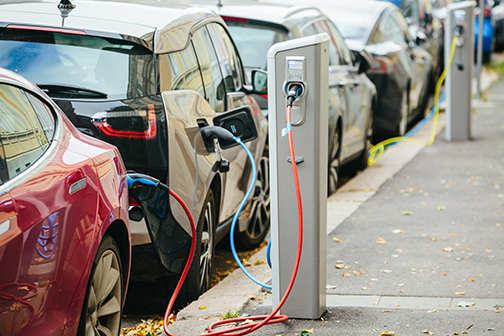There has been an important policy debate stirring in Arizona over a proposal to mandate the construction of electric vehicle (EV) charging stations by utility companies. The current proposed policy would benefit a few select companies and electric vehicle car owners at ratepayer expense.
Surprisingly, this conversation has not been happening in the transparency of the state Capitol amongst the state’s elected lawmakers – but by the Arizona Corporation Commission (ACC) – whose primary charge is to set utility rates. This is inappropriate.
Voters expect policies of such sweeping state implication to be the purview of the Arizona State House and Senate, not the Corporation Commission. After all, existing subsidies for electric vehicle owners such as the utilization of the HOV lane, significant reductions in the cost to register an electric vehicle, and an exemption on the first year for vehicle emissions testing are all statutory laws that went through the more public and rigorous legislative process.
Aside from the ACC being the wrong venue for this discussion, there are deep policy flaws with the proposal.
First, the evolution of new technology into the automotive and energy marketplace has been good for the economy, consumers and the environment. But building charging stations would inject another subsidy into the rate base that picks winners and losers among ratepayers. Less than 1 percent of the population own and operate an electric vehicle, yet they will benefit from this program at the expense of the other 99 percent. Additionally, since most electric vehicle owners are overwhelmingly wealthy and affluent, this is a subsidy that will be paid for by the middle class to benefit the rich.
Secondly, as cited, electric vehicle car owners already receive favorable tax treatment and do not need an additional subsidy. Currently, the majority of Arizona’s transportation infrastructure is financed through vehicle fuel taxes. There is not a comparable EV tax, which is a great deal for adopters of the technology. If the Commission moves forward with subsidizing charging stations, internal combustion car owners would be getting hit at the pump as well as through their utility bills.
The ACC proposal is simply unfair.
Thirdly, the construction of charging stations should be a function of the private sector. If the belief is that electric vehicles are the future of transportation, then there will be a market and viable business model for the construction of charging stations throughout the state. The government will only depress the cultivation of the EV charging station marketplace if the Commission moves forward with this proposal.
Finally, this proposal would set a precedent for additional subsidies to preferred constituencies. For example, if we are to build charging stations for electric cars, why not for electric scooters or golf carts? Once the Commission begins handing out special deals to one class of ratepayers, it should expect others to get in line asking for their sweetheart deal as well.
The Club understands the desire of the Commission to promote new ideas and technology, but mandating the construction of EV charging stations is not the right approach.


Recent Comments